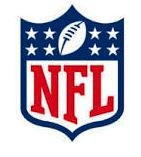
Almost everyone has said something about Jonathan Martin’s departure from the Miami Dolphins. We’ve heard from Martin’s spokespeople and former teammates. We’ve heard from other members of the Dolphins. We’ve heard from former players, particularly those who are a part of network coverage teams. Sunday, we heard from Richie Incognito, the player who sent Martin texts with threatening language.
Two groups we haven’t heard much from are the National Football League (NFL) and the NFL Players Association (NFLPA). The NFL has launched an investigation, and the NFLPA is insisting it be fair. Yippee.
Don’t get me wrong. I’m glad there will be a full investigation. Some of the questions to be answered require a full accounting of the circumstances and issues prior to comment and action. Were Incognito’s actions out of the norm? Was Dolphins’ management somehow involved? Did Martin try to back out of an agreement, or was he being stuck with a $15,000 Vegas tab?
One issue, however, doesn’t need any further investigation, and can and should be addressed immediately, with one simple joint statement:
The NFL and NFLPA will not tolerate hazing or bullying by any of its players or teams.
Sometimes, once the curtain is pulled back, you have to deal with what you find. It ceases to matter exactly why you pulled back the curtain. So it is with the locker room of the Miami Dolphins. Even if Incognito’s actions were, as he says, “from a place of love,” the fact that they seem to be tolerated by his teammates is unacceptable. If they are part of the NFL norm, as some current and former players seem to suggest, the norm needs to change. If they aren’t, then let us know that in no uncertain terms. Either can be done with the above statement.
This seems like a no brainer from a legal perspective. As an astute writer to Peter King’s Mailbag on si.com pointed out, there is a word for demanding money from someone under threat of physical or workplace repercussion: extortion. It’s a crime. Even if that’s not what happened with Martin, it seems clear that sticking rookies with multi-thousand dollar dinner tabs is not unusual for some teams.
There is also the issue of Incognito pressuring Martin to attend organized team activities, which are voluntary based on the collective bargaining agreement. While I doubt a “Hey man, it’ll help us win” would be problematic, Incognito’s methods and role as part of the team’s “leadership council” brings the voluntary component into question.
The public relations benefits of a strong statement are arguably more obvious. Bullying is now on the front burner throughout the entire NFL player pipeline, I mean, educational system. Making it clear that they won’t be hiring bullies could boost anti-bullying programs nationwide and make the NFL a partner in the effort. Not issuing a statement now simply means issuing one from a worse place the first time a high school bully defends his or her actions with the NFL norm.
Really, what are the other options? That the NFL and NFLPA support hazing as a way to build a more cohesive team? That idea has been fairly well debunked, with most colleges, fraternities and the military having strict rules against it (though enforcement is far from perfect). That new NFL players need to “pay their dues?” Please. Most of them have spent two or more years without compensation (at least legally) in college football, the NFL’s free farm system.
Too many organizations enacted hazing policies only after the death of a victim. If the NFL and NFLPA can avoid that by learning from Martin’s experience, they should take the opportunity. Assigning blame and punishment require an investigation. Doing the right thing by ending hazing and bullying in the NFL should not.











